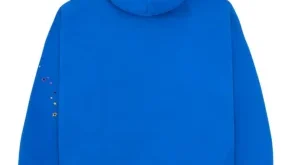Custom retail packaging is evolving rapidly as brands strive to create memorable unboxing experiences, connect with eco-conscious consumers, and differentiate themselves in competitive markets. Staying ahead of trends in packaging design ensures your brand remains relevant, appealing, and innovative. Here are eight key trends shaping the custom retail packaging landscape in 2024 and beyond.
Sustainable Packaging Solutions
Why It’s Trending:
Sustainability is no longer optional—customers demand eco-friendly practices. Packaging that minimizes environmental impact resonates with modern consumers and aligns with global efforts to reduce waste.
Key Features:
- Recycled Materials: Boxes made from recycled cardboard or paper.
- Compostable Packaging: Use of plant-based materials that decompose naturally.
- Minimalist Designs: Reducing excessive materials without compromising aesthetics.
Brands adopting sustainable packaging, like those certified by FSC (Forest Stewardship Council), not only appeal to eco-conscious shoppers but also enhance their reputation.
Personalized Packaging
Why It’s Trending:
Personalization fosters a deeper connection between brands and their customers. Whether it’s a unique name or a special message, customized packaging creates an emotional bond.
Key Features:
- Custom Names or Initials: Add a personal touch for gift-worthy packaging.
- Interactive Elements: QR codes that link to personalized content or thank-you messages.
- Limited Edition Designs: Unique packaging for exclusive product launches.
This trend is especially popular in industries like fashion, beauty, and gourmet foods.
Minimalist Aesthetic
Why It’s Trending:
Simplicity stands out in a cluttered marketplace. Minimalist designs with clean lines and subdued colors convey sophistication and modernity.
Key Features:
- Neutral Color Palettes: Shades like beige, white, and black dominate.
- Bold Typography: Simplistic yet striking text that communicates the brand message.
- Uncluttered Layouts: Prioritizing essential information over decorative elements.
Minimalist packaging often emphasizes quality and elegance, making it a hit with premium brands.
Smart Packaging Technology
Why It’s Trending:
The integration of technology into packaging is revolutionizing customer experiences, offering both convenience and engagement.
Key Features:
- QR Codes and NFC Tags: Provide instant access to product details, tutorials, or promotions.
- Temperature Indicators: Especially useful for perishable goods.
- Augmented Reality (AR): Interactive experiences that engage customers through mobile apps.
Smart packaging not only enhances usability but also increases the perceived value of the product.
Vibrant and Artistic Designs
Why It’s Trending:
Bold, colorful, and artistic packaging captures attention and expresses creativity. It’s a powerful way to tell a brand story and create a lasting impression.
Key Features:
- Custom Illustrations: Hand-drawn or digital artwork that reflects brand identity.
- Gradient Colors: Smooth transitions between hues for a dynamic look.
- Playful Themes: Packaging that evokes joy and curiosity.
This trend works well for brands targeting younger, trend-conscious demographics.
Transparent and Window Packaging
Why It’s Trending:
Customers appreciate transparency—both literally and figuratively. Packaging that allows a peek at the product builds trust and highlights its quality.
Key Features:
- Die-Cut Windows: Strategically placed openings to showcase products.
- Clear Materials: Use of PET or biodegradable plastic for visibility.
- Hybrid Designs: Combining opaque and transparent elements for a balanced look.
This approach is particularly effective for food items, cosmetics, and artisanal goods.
Multi-Functional Packaging
Why It’s Trending:
Functional designs that extend beyond a one-time use appeal to environmentally conscious and budget-savvy consumers.
Key Features:
- Reusable Containers: Packaging that can double as storage or decor.
- Convertible Designs: Boxes that transform into stands, organizers, or playsets.
- Compact Designs: Optimized for storage and portability.
Such packaging reduces waste while offering added value, making it a win-win for consumers and brands.
Textured and Tactile Elements
Why It’s Trending:
Packaging that feels as good as it looks creates a multi-sensory experience, enhancing customer interaction with the product.
Key Features:
- Embossing and Debossing: Adds a luxurious, tactile quality.
- Soft-Touch Coatings: Provides a velvety surface for a premium feel.
- Natural Textures: Incorporating materials like uncoated kraft paper or linen.
Tactile packaging is particularly effective in premium markets like luxury goods and boutique products.
Conclusion
Custom retail packaging is more than just a protective layer—it’s a vital branding tool that influences purchase decisions and customer loyalty. By embracing trends like sustainability, personalization, and smart technology, businesses can create boxes with designs that captivates, engages, and retains customers.
 Daily Blogger News Stay updated with the latest trends and insights. Your reliable source for daily updates and information.
Daily Blogger News Stay updated with the latest trends and insights. Your reliable source for daily updates and information.







